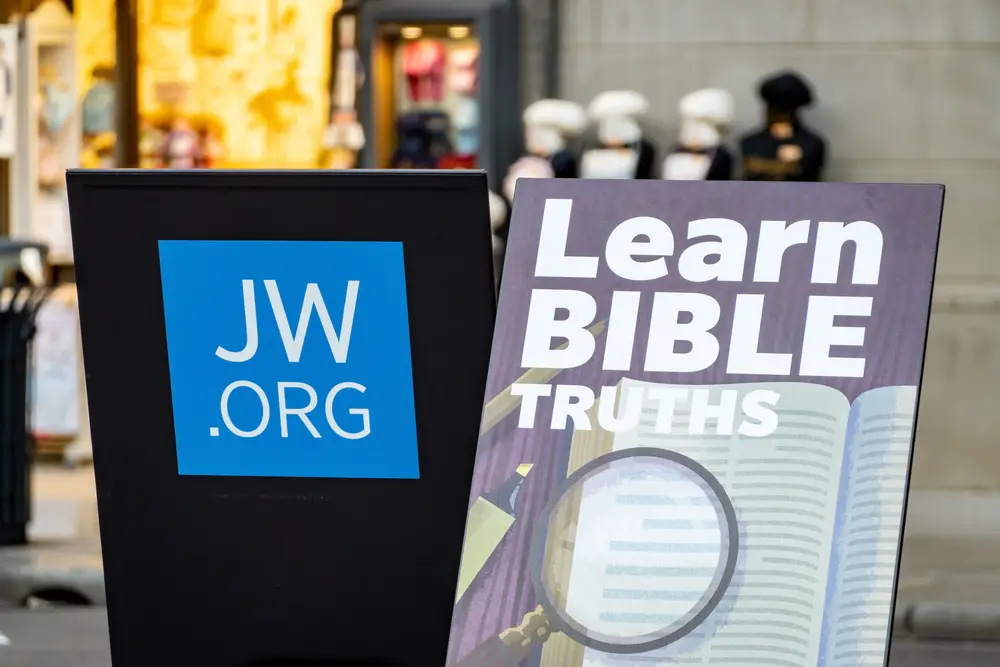A wave of criminal charges and mounting survivor testimony has placed Pennsylvania at the center of what’s become the nation’s largest-ever investigation into sexual abuse by Jehovah’s Witnesses. The six-year probe, launched in 2019, has resulted in at least 16 arrests and 11 convictions across the state, the Pittsburgh Post-Gazette reported today. Many of the accused were elders or trusted members of local congregations, men that families turned to for spiritual guidance who, behind closed doors, betrayed that trust in horrific ways.
The investigation has uncovered allegations dating back to the 1990’s and as recent as 2014. In nearly all cases, the abuse was never reported to police. Instead, Jehovah’s Witness elders handled accusations internally, often burying them in secret files or reporting them to Watchtower headquarters in New York rather than law enforcement. These practices mirror the Catholic Church scandal that rocked Pennsylvania seven years earlier—but with an added layer of secrecy unique to Jehovah’s Witness culture.
A Culture of Silence and Control
Many survivors describe growing up in an environment where elders held unchecked authority over members’ personal lives. According to a former congregant, “Anything that happens in your life would come to the elders first. That’s part of the culture.” For some, this meant that even allegations of child rape were addressed in private meetings rather than in courtrooms.
The story of one man, Eric Eleam, typifies the devastating consequences of this silence. Eleam was accused of repeatedly raping a girl beginning when she was just 12. During a private meeting, he admitted to the abuse, but no one notified police. When law enforcement finally came calling years later, Eleam shot himself rather than face arrest.
Other convicted abusers include a man who preyed on a nonverbal girl with autism, another who repeatedly assaulted two girls while acting as their legal guardian, and a Berks County man who used alcohol and pornography to lure boys into movie theaters, his truck, and even Kingdom Hall itself.
The “Two-Witness Rule” and Internal Databases
Many survivors point to the Jehovah’s Witnesses’ “two-witness rule” as a critical barrier to justice. Under this internal policy, elders are instructed not to take disciplinary action unless two individuals can confirm the abuse—an almost impossible standard in cases of child sexual assault. Even when credible reports exist, elders are advised to consult the Watchtower’s legal department before taking further steps.
Watchtower, the global nonprofit that provides legal and doctrinal support to over 118,000 congregations, has maintained a confidential database—referred to in legal filings as the “CM database,” short for child maltreatment. This archive contains detailed records of abuse allegations, but court filings show many entries concluded there was “no duty to report.” Some entries even advised elders to destroy notes from legal consultations and to avoid cooperating with police.
Legal Loopholes and Pushback
Jehovah’s Witness congregations have invoked “clergy privilege” in an effort to shield elder knowledge of abuse from law enforcement. A case brought by a Philadelphia congregation is now working its way through the Pennsylvania court system, aiming to clarify whether elders enjoy the same legal protections as priests or ministers in confessional settings.
Meanwhile, survivors and advocates are urging lawmakers to close these gaps. “These children deserved a place to grow up in peace, not to be preyed upon,” said one official involved in the investigation.
A Global Pattern
The Pennsylvania grand jury’s findings reflect what many experts describe as a worldwide crisis. In Australia, a government review found that Jehovah’s Witnesses maintained files on 1,006 alleged abusers—nearly 600 of whom had admitted to wrongdoing. The United Kingdom and the Netherlands have launched similar probes. In May 2025, the state of Washington passed a landmark law requiring all clergy to report abuse, with no exceptions.
Despite the mounting legal and public pressure, Watchtower maintains that its internal procedures are sufficient. But for survivors, the damage is deep and lasting. One woman, who remains anonymous, told reporters: “You realize it’s not just a seed. It’s rooted all the way up to the headquarters.”
An Ongoing Investigation With No Clear End
With several trials set for later this year, including in Allegheny, Lancaster, and Westmoreland Counties, Pennsylvania’s investigation is far from over. Sources close to the probe believe more arrests are imminent. As more hidden files are uncovered and victims feel safe enough to step forward, advocates hope this painful chapter will bring lasting change.
“If there’s a problem in Pennsylvania, there’s a problem around the world,” said a whistleblower and former congregant. “Pennsylvania is just one state. But it has to start somewhere.”
Are You A Survivor Of Institutional Sexual Abuse?
If you or someone you know experienced abuse within the Jehovah’s Witnesses, know you are not alone—and you have rights. Fill out our confidential form for a free case review. We may help connect you with an empathetic, experienced attorney who can help you pursue justice and compensation.




